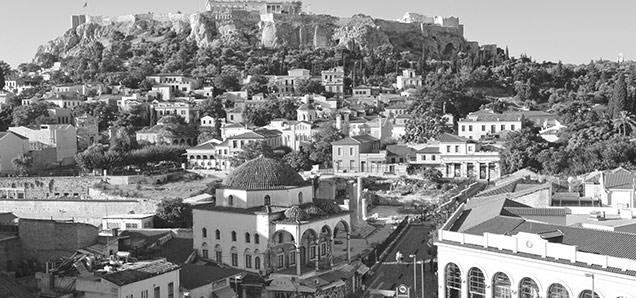Addressing the elephant in Europe
 CREDIT: "MONASTIRAKI SQUARE" BY VISIT GREECE ON FLICKR. LICENSED UNDER CC BY-NC-SA 2.0 / DESATURATED
CREDIT: "MONASTIRAKI SQUARE" BY VISIT GREECE ON FLICKR. LICENSED UNDER CC BY-NC-SA 2.0 / DESATURATEDGreece has had its fair share of hardships. How will the outcome of last week's election affect the state of the country?
Europe has for a long time shown a disturbing trend in its political climate. For a continent that was once the centre of the most brutal conflict in history and an unfortunate host to one of the largest crimes against humanity, it appears in polls and election results that fascism and its varying degrees of extremity have not taken a rain check.
While we can always expect fringe groups to insert themselves in the political battleground, we should be concerned of the potential harm that these groups bring to a populace.
It is safe to say that fascism needs no introduction or explanation. It is simply an ideology based on hatred, control and elitism. If it’s this simple though, why are we seeing groups like Golden Dawn in Greece place third in its federal elections, or other similar far-right groups like the National Front in France enter the European parliament?
As simple as the ideology may be, the problems that surround it are far more complex. Greeks have been dealing with a debt crisis for many years, and other European states are facing issues related to the number of immigrants and refugees that have left their countries.
The Eurozone itself is still in disarray ever since the Global Financial Crisis of 2007-08. These economic issues have greatly impacted Europe’s working class who are unfortunately the target audience of these far-right political groups. In a way, it mirrors some of what happened in the interwar years between the First World War and the Second World War.
It’s terrifying to think that such a thing could happen again, but it is completely within the realm of possibility by this point should trends continue the way they have continued.
One of my issues with this topic is related to certain movements, such as the Republican marches that began after the Charlie Hebdo shootings in January in Paris. With hashtags like #JeSuisCharlie taking a foothold in popular media, this has become a huge rallying point for nationalists to recruit disenfranchised youth into their ranks.
While the shooting of journalists is never debatable, it is hard to ignore these fallout effects that are, in my opinion, far more concerning than terrorist attacks. When we discuss free speech, it is often in defence of sometimes-indefensible groups.
Strangely enough, free speech enthusiasm seems to encompass the hateful vitriol of neo-Nazi affiliates but not the equally hateful vitriol of groups with a terrorist agenda.
I question the validity of this and whether we have double standards in such defence, because as far as I am concerned, there is no difference between a member of ISIL and a neo-Nazi. They are both equally harmful, both dangerous and both based on exterminating those who they perceive as weaker than them.
Maybe we should consider that our focus should not be on free speech itself but the growing trends that allow it to be attacked in the first place.
Editorial opinions or comments expressed in this online edition of Interrobang newspaper reflect the views of the writer and are not those of the Interrobang or the Fanshawe Student Union. The Interrobang is published weekly by the Fanshawe Student Union at 1001 Fanshawe College Blvd., P.O. Box 7005, London, Ontario, N5Y 5R6 and distributed through the Fanshawe College community. Letters to the editor are welcome. All letters are subject to editing and should be emailed. All letters must be accompanied by contact information. Letters can also be submitted online by clicking here.













